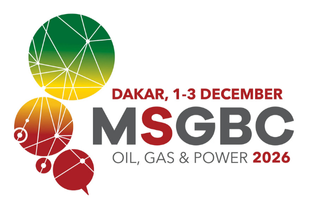Senegal Leverages its Gas, Phosphate Resources to Develop Fertilizer Industry
)
While Dangote Group has been active in Senegal since 2015 through the operation of its cement plant in the Thiès region, this latest development represents a strategic shift toward Senegal's expanding phosphate mining industry. The combination of local phosphate production and the expected ammonia output from natural gas production by 2029 has the potential to position Senegal as a regional leader in fertilizer production. This would align with the vision of newly-elected Senegalese President Bassirou Diomaye Faye, whose national agenda prioritizes agricultural independence for the country.
Phosphate Mining for Fertilizer Production
Senegal holds over one billion tons of phosphate reserves, enough to last for approximately 500 years, given an average annual production of 2 million tons. As a result, Senegal is the second-largest fertilizer producer in West Africa, trailing only Nigeria. This vital mineral, essential for fertilizer production and therefore large-scale farming, is mined by local companies, which then export part of the output as ready-to-use fertilizers, phosphoric acid and phosphate rock. Among these companies are Société Sénégalaise des Phosphates de Thiès, Société Minière de la Vallée du Fleuve Sénégal and Baobab Mining and Chemical.
The largest player, Industries Chimiques du Sénégal (ICS), produces approximately 1-1.8 million tons of natural phosphate annually, generating a turnover of $450 million. Thanks to a $225-million investment from global chemical company Indorama, ICS rehabilitated its three key industrial sites: the Tobène mine, the Darou plant – which converts phosphate into phosphoric acid – and the Mbao fertilizer manufacturing plant. In 2016, the company also commissioned a 20 MW power plant in Mboro to ensure a reliable energy supply for its operations.
Approximately 80–90% of ICS’s production is exported to India by sea, while also meeting Senegal's domestic demand for NPK fertilizers, which combine phosphate, potassium and nitrogen. These fertilizers are mainly used for crops like rice, peanuts, corn and vegetables. To produce NPK, ICS currently sources nitrogen from its sister company in Nigeria.
Urea Production from GTA Gas
Natural gas is the most crucial cost component for nitrogen-based fertilizers, as it serves as the primary feedstock for ammonia synthesis, which is then converted into urea. Currently, Senegal imports about 100,000 tons of urea, but the government aims to reverse this through the Greater Tortue Ahmeyim (GTA) LNG project, led by bp and Kosmos Energy. The project’s first phase, expected to start producing natural gas by the end of 2024, could significantly alter Senegal’s fertilizer production landscape.
In May this year, Senegal’s national oil company Petrosen announced the results of two studies for the construction of a urea plant, expected to be operational by 2029. These studies, which include a market analysis and an evaluation of the plant's carbon capture potential, are part of a broader initiative to boost local urea production. Known as the “Senegal Fertilizer Company,” the project aims to utilize domestically produced gas to achieve self-sufficiency in urea, while also optimizing the country's phosphate resources by formulating mixed NPK fertilizers.
Agricultural Self-Sufficiency
This strategy aligns with Senegal's broader ambitions to strengthen its agricultural sector, which President Faye has declared as a critical stepping stone to achieving self-sufficiency. Faced with the challenges of a highly globalized market, the Senegalese government is developing a strategy to improve farmers' access to nitrogen-based fertilizers, subsidizing them by up to 50%. Phosphate, currently priced at $190 per ton, will be fully subsidized and distributed free of charge to agricultural producers. This is expected to create a positive cycle, boosting mining production and attracting further investment.
As the region's premier investment platform, the MSGBC Oil, Gas & Power 2024 conference will return to Dakar on December 3-4. Uniting key players from the mining and energy industries with international investors and project developers, the event will showcase the innovative initiatives shaping Senegal’s energy sector, including the latest developments in phosphate mining and fertilizer production.
Explore opportunities, foster partnerships and stay at the forefront of the MSGBC region’s oil, gas and power sector. Visit www.msgbcoilgasandpower.com to secure your participation at the MSGBC Oil, Gas & Power 2024 conference. To sponsor or participate as a delegate, please contact sales@energycapitalpower.com.

